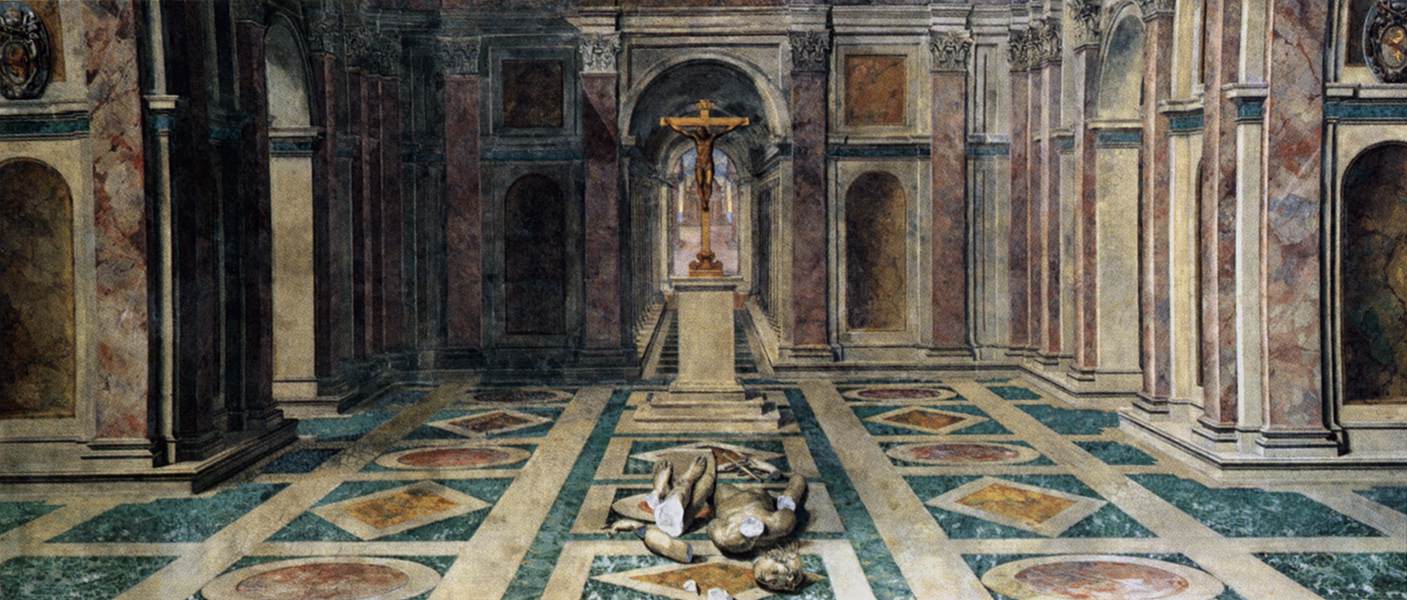I suspect the endless essays about the rethinking, protecting, death, in other words, the “crisis,” of the humanities in The Chronicle of Higher Education (if only) have cleared more than one forest.
I’ve written about the religious uses of the “secular” academy elsewhere in my post about Warhol and Blau. As you can tell from the post it’s not like I’m first in line to bust up the idols of the secular academy. On the other hand, the disappointing exchange surrounding yesterday’s post about (classical liberal) ideology in what passes for theology in America brought me back to Coetzee’s Elizabeth Costello. (See: comment section)
I would like to highlight this novelistic account with the qualification that there is no reason to identify it with Coetzee’s own opinions, or to totally dismiss them as having no connection with them.
The argument presented by his character, Sr. Bridget Costello, in her lecture “The Humanities in Africa,” is that the humanities were a stillborn child of theology, even perhaps more so than futile academic projects such as the Death of God movement of a/theology. Without further ado, here’s a large chunk of her lecture:
‘Textual scholarship, I would want to say if I had more time, was the living breath of humane studies while humane studies were what we can properly call a movement in history, namely the humanist movement. But it did not take long for the living breath in textual scholarship to be snuffed out. The story of textual scholarship since then has been the story of one effort after another to resuscitate that life, in vain.
‘The text for the sake of which textual scholarship was invented was the Bible. Textual scholars saw themselves as servants in the recovery of the true message of the Bible, specifically the true teaching of Jesus. The
figure they employed to describe their work was the figure of rebirth or resurrection. The reader of the New Testament was to encounter face to face for the first time the risen, reborn Christ, Christus renascens, obscured no longer by a veil of scholastic gloss and commentary. It was with this goal in mind that scholars taught themselves first Greek, then Hebrew, then (later) other languages of the Near East. Textual scholarship meant, first, the recovery of the true text, then the true translation of that text; and true translation turned out to be inseparable from true interpretation, just as true interpretation turned out to be inseparable from true understanding of the cultural and historical matrix from which the text had emerged. That is how linguistic studies, literary studies (as studies in interpretation), cultural studies and historical studies–the studies that form the core of the so-called humanities–came to be bound up together.
‘Why, you may justly ask, call this constellation of studies devoted to the recovery of the true word of the Lord studia humanitatis? Asking this question will, it turns out, be much the same as asking, Why did the studia humanitatis come into flower only in the fifteenth century of our dispensation and not hundreds of years earlier?
‘The answer has much to do with historical accident: with the decline and eventual sack of Constantinople and the flight of Byzantine men of learning to Italy. (Observing your Dean’s fifteen-minute rule, I will pass over the living presence of Aristotle, Galen and other Greek philosophers in medieval Western Christendom, and the role of Arab Spain in transmitting their teachings.)
‘Timeo Danaos et dona ferentes. The gifts brought by the men from the East were not only grammars of the Greek language but texts by authors from Greek antiquity. The linguistic command that was intended to be applied to the Greek New Testament could be perfected only by immersing oneself in these seductive pre-Christian texts. In no time, as one might expect, the study of these texts, later to be called the classics, had become an end in itself.
‘More than that: the study of the texts of antiquity came to be justified not only on linguistic grounds but on philosophical grounds too. Jesus was sent to redeem mankind, the argument went. To redeem mankind from what? From an unredeemed state, of course. But what do we know of mankind in an unredeemed state? The only substantial record that covers all aspects of life is the record of antiquity. So to grasp the purpose behind the Incarnation–that is to say, to grasp the meaning of redemption–we must embark, through the classics, on studia humanitatis.
‘Thus, in the brief and crude account I give, did it come about that biblical scholarship and studies in Greek and Roman antiquity came to be coupled in a relationship never without antagonism, and thus did it come about that textual scholarship and its attendant disciplines came to fall under the rubric “the humanities”.
‘So much for history. So much for why you, diverse and ill-assorted as you may privately feel yourselves to be, find yourselves assembled this morning under a single roof as graduates-to-be in the humanities. Now, in the few minutes left to me, I am going to tell you why I do not belong among you and have no message of comfort to bring to you, despite the generosity of the gesture you have extended to me.
‘The message I bring is that you lost your way long ago, perhaps as long as five centuries ago. The handful of men among whom the movement originated of which you represent, I fear, the sad tail–those men were animated, at least at first, by the purpose of finding the True Word, by which they understood then, and I understand now, the redemptive word.
‘That word cannot be found in the classics, whether you understand the classics to mean Homer and Sophocles or whether you understand them to mean Homer and Shakespeare and Dostoevsky In a happier age than our own it was possible for people to bluff themselves into believing that the classics of antiquity offered a teaching and a way of life. In our own times we have settled, rather desperately, for the claim that the study of the classics in itself might offer a way of life, or if not a way of life then at least a way of earning a living which, if it cannot be proved to do any positive good, at least is on no side claimed to do any harm.
‘But the impulse behind the first generation of textual scholars cannot be diverted so easily from its proper goal. I am a daughter of the Catholic Church, not of the Reformed Church, but I applaud Martin Luther when he turns his back on Desiderius Erasmus, judging that his colleague, despite his immense gifts, has been seduced into branches of study that do not, by the standards of the ultimate, matter. The studia humanitatis have taken a long time to die, but now, at the end of the second millennium of our era, they are truly on their deathbed. All the more bitter should be that death, I would say, since it has been brought about by the monster enthroned by those very studies as first and animating principle of the universe: the monster of reason, mechanical reason. But that is another story for another day.’













